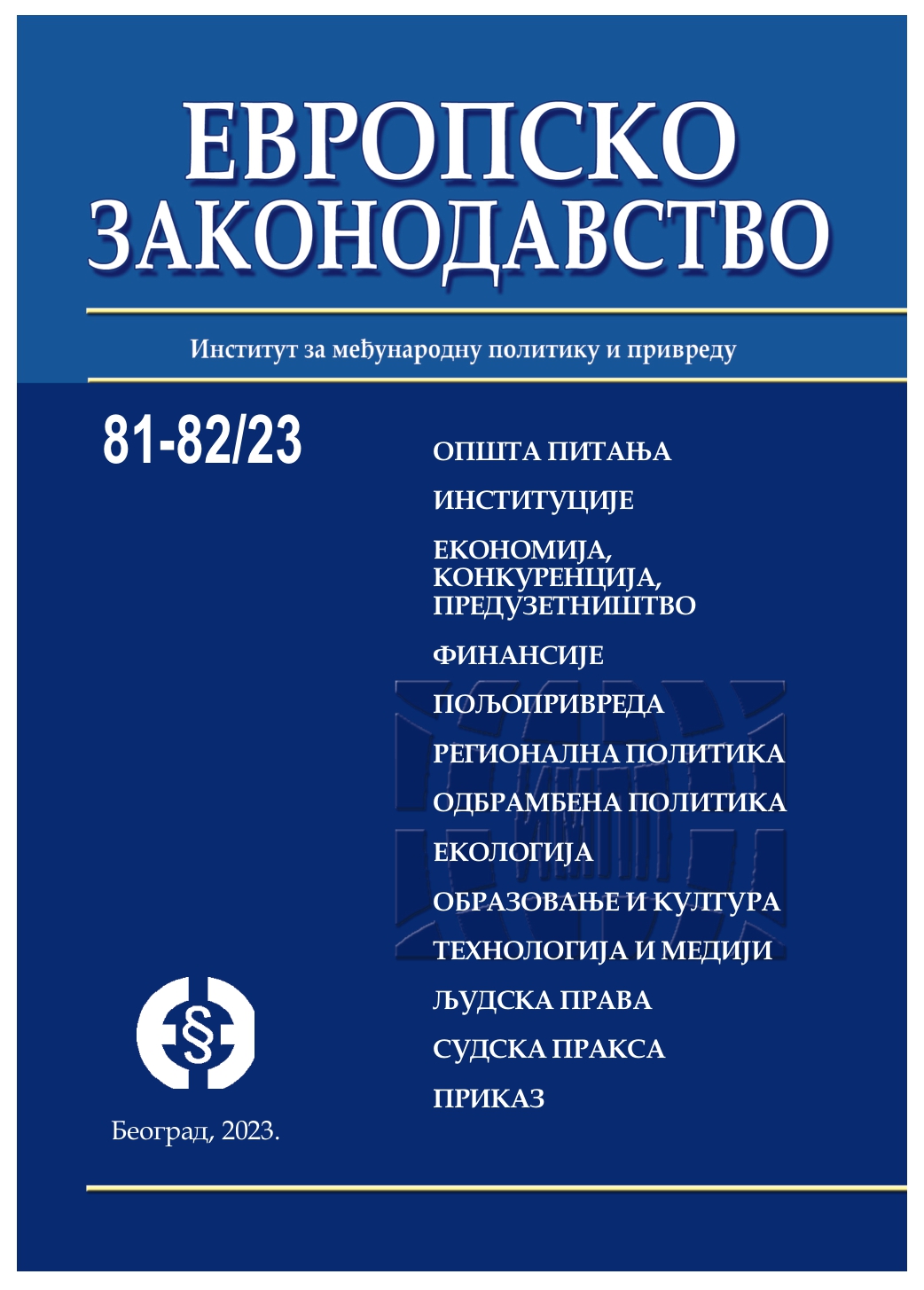Кохезиона политика Европске уније - економски развој и изградња инфраструктуре држава Западног Балкана
The cohesion policy of the European Union - economic development and infrastructure building of the Western Balkan countries
Author(s): Slobodan NeškovićSubject(s): Law, Constitution, Jurisprudence, EU-Legislation
Published by: Институт за међународну политику и привреду
Keywords: economic development; infrastructure construction; Western Balkans; European Union; cohesion policy
Summary/Abstract: The Cohesion Policy of the European Union, as an integral part of its regional policy, represents the strategic commitment of this international organisation aimed at sustainable economic development and social prosperity in its member states. The European Union has determined what kind of financial assistance should be given to the states through the Cohesion Fund in order to accomplish the specified objectives. Through this fund, member states receive grants to achieve uniform economic growth, build infrastructure, and develop human capacities. Financial aid from the Cohesion Fund and other structural funds should contribute to “economic, territorial and social cohesion”. In addition to receiving development aid, the Western Balkans countries applying to join the EU also have access to pre-accession aid money from the IPA fund, which serves as a tool for laying the groundwork for the use of structural funds before admission to the European Union. In this sense, the candidate countries use the possibilities of existing financial support for the development of their institutional capacities and the implementation of economic reforms. Since economic reforms are a prerequisite for sustainable economic development, the Western Balkans countries place more emphasis on the development of transport infrastructure and road networks, which would make it easier to achieve integration into the transport infrastructure of the European Union. Achieving positive effects on that front is connected with the development of international cooperation, not only with the EU member states but also with Asian states. In this sense, the Republic of Serbia has a particular interest in utilising its positive international relations to develop its economy and infrastructure.
Journal: Европско законодавство
- Issue Year: 22/2023
- Issue No: 81-82
- Page Range: 80-94
- Page Count: 15
- Language: Serbian

